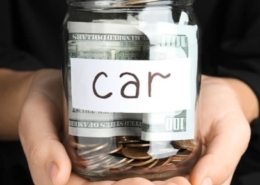How to Handle Extra Fees from Car Dealers
Get insider advice on navigating car dealer add-on fees to keep your vehicle purchase hassle-free and affordable.
How to Handle Additional Charges When Buying a Car
When you set out to buy a car, the initial price tag often seems straightforward. However, once you decide to finalize the purchase, several additional fees can suddenly appear, adding hundreds or even thousands of dollars to the cost. These car dealer add-on fees can range from legitimate charges to unnecessary extras designed to increase the dealer’s profit.
Understanding these fees, knowing which ones are negotiable, and learning how to avoid them can save you significant money.
Key Takeaways
- Identify Fees: Know the types of add-on fees and distinguish necessary from unnecessary ones.
- Research and Prepare: Before visiting the dealership, inform you about typical fees and costs.
- Negotiate and Document: Negotiate to reduce fees and get all agreements in writing.
This guide will explain the various types of add-on fees, how to negotiate or avoid them, and tips for a smooth car-buying experience.
Car Buying Tip: Dealers face low inventory, making finding a fair price on a new car challenging. Request your free dealer quote today and compare local prices to beat the market!
Understanding Car Dealer Add-on Fees
Car dealer add-on fees are extra charges added to the price of a car. These fees can include things like paperwork, delivery, and additional services. Some of these fees are necessary, but others are not. This brings into question what dealer fees you should pay.
Knowing the difference can help you save money and show you a few of the ways how a car dealership makes money.
Types of Add-on Fees
Dealerships often add various fees to the car’s price, including charges for paperwork, delivery, dealer prep, extended warranties, and extra services like VIN etching and paint protection.
Understanding these different fees and the price terms car dealers use can help you determine which are necessary and which can be negotiated or avoided.
Documentation Fees (Doc Fee)
Dealer documentation fees cover the cost of handling the paperwork for your car purchase, such as the title and registration. These fees can vary greatly depending on the state and dealership. Some states limit how much dealers can charge, while others do not.
It’s a good idea to ask about these fees early on and try to get them lowered if they seem too high.
If the dealership has a policy about not removing a do fee, “Everyone has to pay it.” A good tactic for negotiating a dealer doc fee is to have the dealer lower the price of the vehicle by some or all of the fee. This helps ensure you’re not paying more than necessary.
Delivery and Destination Fees
Delivery and destination fees cover the cost of the car from the manufacturer to the dealership. The manufacturer sets these fees, which typically cannot be negotiated.
When reviewing your contract, ensure these fees are listed only once and not duplicated elsewhere. This helps you avoid paying extra and provides the final price you pay accurately.
Understanding these fees enables you to spot any potential overcharges in your contract.
Dealer Preparation Fees
Dealer preparation fees are charges for preparing the car for sale, including cleaning, inspections, and minor adjustments. Car dealer prep fees can be higher than necessary, as dealers may inflate costs to increase their profit.
To avoid overpaying, ask the dealer for a detailed breakdown of what these fees cover. If the amount seems too high, don’t hesitate to negotiate. By questioning and negotiating these fees, you can potentially reduce the overall cost of your new car.
Extended Warranties and Service Plans
Extended warranties and service plans offer extra protection for your car beyond the standard warranty provided by the manufacturer. These plans can cover repairs, maintenance, and other services for longer, giving you peace of mind.
Dealerships often increase the price of these warranties and plan to make a profit. Research and compare auto warranty prices from other sources before agreeing to buy from the dealer. You might find similar or better coverage at a lower cost elsewhere.
Taking the time to shop around can save you money and ensure you get the best deal on the coverage you need.
VIN Etching
VIN etching is a service where the car’s unique identification number (VIN) is engraved onto the windows. This can help prevent theft because it makes the car less attractive to thieves, who must replace all the glass to remove the numbers. While VIN etching can be beneficial, dealerships often charge much more for this service than other providers.
To save money, look for local shops or do-it-yourself kits offering VIN etching at a lower price. By considering these alternatives, you can get the same level of theft protection without overpaying.
Paint Protection and Fabric Protection
Dealerships offer paint and fabric protection packages to keep your car’s exterior paint and interior fabric looking new and pristine. Paint protection helps prevent scratches and damage from the elements, while fabric protection guards against stains and spills.
While these services can be beneficial, dealerships often charge high prices for them. You can usually find third-party providers who offer the same services at a much lower cost.
Before deciding, consider if you need these protections based on your usage and environment. Compare prices from different providers to ensure you get the best deal for keeping your car in good condition.
- How to Buy a New Car Below Factory Invoice Price – True dealer cost and the factory invoice price are not the same… dealer cost can be much lower.
- Figure a Fair Profit New Car Offer – How to calculate a fair profit new car offer.
- How to Buy a New Car Online – Not sure where to start? Use my step-by-step guide on how to buy a new car online.
Anti-Theft Devices
Anti-theft devices, such as alarms and tracking systems, provide extra security for your car, making it less likely to be stolen. These devices can give you peace of mind by alerting you to potential theft or helping you recover your vehicle if it’s stolen. Often, dealerships will charge significantly more for this service.
You can usually find the same or better anti-theft devices from other retailers or specialized shops at a lower cost. Before purchasing from the dealer, consider the security features you need and compare prices from different sources.
This way, you can enhance your car’s security without overspending.
Window Tinting
Window tinting involves applying a dark film to your car’s windows to reduce glare, block UV rays, and provide privacy. It’s a popular add-on for many car buyers, but this service often comes with a steep price tag at dealerships.
You can usually get window tinting done at a much lower cost by visiting a specialized shop that focuses on this service. These shops often offer various tint options and can provide high-quality work at a better price. If you want tinted windows, it’s worth getting quotes from local tinting specialists before agreeing to the dealership’s offer. This way, you can enjoy the benefits of window tinting without overpaying.
Financing and Insurance Add-ons
When you finance through the dealer, you might see extra charges related to financing and insurance. These can include gap insurance and loan application fees.
Gap Insurance
Gap insurance is a type of coverage that protects you if your car is totaled in an accident or stolen. It covers the difference between your car’s worth and what you still owe on your loan. For example, if your car’s value is less than the remaining balance on your loan, gap insurance will pay the difference.
This can be very helpful, especially for new cars that depreciate quickly. However, dealerships often charge more for gap insurance than other providers. It’s good to compare prices with your insurance company or other providers before buying gap insurance from the dealer to ensure you get the best deal.
Loan Application Fees
Loan application fees are charges when you apply for financing to buy a car. These fees cover the cost of processing your loan application and are often added to your overall loan amount. While some dealerships charge these fees, they are not always set in stone.
If you have good credit or secure financing independently, you may be able to negotiate these fees or even have them waived. It’s essential to ask about these fees upfront and try to negotiate them to reduce your overall cost.
By being proactive, you can save money on your car loan.
Real-Time Bargain Hunting: Turn to Edmunds for instant access to the latest and greatest local deals, saving you time, money, and stress.
Identifying Necessary vs. Unnecessary Fees
Not all add-on fees that dealers charge are necessary. Some are essential for your car purchase, while others are optional and can be avoided.
Here’s how you can tell the difference:
- Research Fees in Advance: Know what fees to expect.
- Ask for Itemized Costs: Get a detailed list of all fees.
- Evaluate Necessity: Decide if the service is essential.
- Compare Prices: See if you can get the service cheaper elsewhere.
By following these steps, you can identify which fees are necessary and which ones you can negotiate or avoid, saving you money on your car purchase.
Strategies for Negotiating Add-on Fees
Here are a few practical tips for negotiating car dealer add-on fees.
These can help you reduce or eliminate extra charges and save money on your vehicle purchase.
- Research and Prepare: Knowledge is power—research standard add-on fees and typical costs before visiting the dealer. Being informed helps you challenge excessive charges.
- Using Competing Offers: Use offers from other dealerships to negotiate better terms. A lower quote from another dealer can be a bargaining tool.
- Bringing in Your Financing: Having your financing gives you more leverage. Dealers often add unnecessary fees to financing packages, so independent funding can help you avoid extra costs.
- Understanding Your Rights: Know your consumer rights. Familiarize yourself with local laws about car sales and add-on fees. This knowledge protects you from unfair practices.
- Getting Everything in Writing: Ensure all agreements, including negotiated fees, are documented in writing. This prevents discrepancies or extra charges later.
- Avoiding Pressure Tactics: Dealers use high-pressure tactics to get you to agree to extra fees. Stay firm and take your time to evaluate each fee. Remember, you can always walk away.
Post-Purchase Checklist
After buying your car, follow these steps:
- Review the Contract: Check that all terms are in the contract.
- Confirm No Extra Fees: Ensure no hidden fees are added.
- Follow Up on Services: Verify that all agreed services are completed.
Dealing with Post-Sale Add-on Attempts
After you’ve purchased your car, some dealers might try to sell you additional add-ons, such as extended warranties, maintenance plans, or extra accessories. These post-sale attempts are common and can be persistent. It’s important to remember that you’ve already completed your purchase and are not obligated to buy anything else.
Politely but firmly decline any offers that you don’t need. You can say something like, “Thank you, but I’m not interested in any additional services at this time.”
If the dealer continues to push, don’t be afraid to walk away from a car deal. By standing your ground, you can avoid unnecessary expenses and start enjoying your new car without added costs.
Legal Recourse for Unfair Fees
The best way to protect yourself from unfair dealer fees is to do your research upfront and read everything before you sign anything. Once you sign a contract with a dealership, you’ll be fighting a long and expensive battle with no guarantee of winning.
If you believe a car dealer has charged you unfair fees, there are steps you can take to address the issue. First, gather all your paperwork, including the sales contract and other documents related to your purchase. Review these documents to identify the fees you think are unfair.
Next, contact your state’s consumer protection agency. These agencies can guide your rights and may help you resolve the issue with the dealership. They can also inform you about state laws regulating car dealer fees and practices.
If you cannot resolve the issue through the consumer protection agency, consider consulting a lawyer specializing in consumer rights or automotive issues. A lawyer can offer legal advice, help you understand your options, and represent you if you decide to take legal action against the dealer.
These steps can help you fight unfair fees and ensure you are treated fairly during your car purchase.
FAQs
What are car dealer add-on fees?
Car dealer add-on fees are additional charges added to a vehicle’s base price, such as documentation fees, delivery charges, and more.
Are documentation fees negotiable?
Yes, doc fees can often be negotiated. Some states regulate these fees, but dealers may still reduce the price of the vehicle by the fee amount.
Do I need extended warranties from the dealer?
Extended warranties can offer extra coverage, but they are often marked up. Consider third-party options to save money or negotiate prices with a dealership.
What is gap insurance, and do I need it?
If the vehicle is totaled, gap insurance covers the difference between its value and the loan balance. It can be helpful, but it is often cheaper through your insurance provider.
How can I avoid unnecessary add-on fees?
Research fees in advance, ask for itemized costs, evaluate the necessity of each fee, and negotiate with the dealer.
What should I do if I am charged unfair fees?
Contact your state’s consumer protection agency or consult a lawyer if you have been charged unfair fees.
Conclusion: Dealing With Car Dealer Add-on Fees
Dealing with car dealer add-on fees requires knowledge, preparation, and negotiation skills. Understand the types of fees, research their typical costs, and know which are necessary. Ask for detailed fee breakdowns and negotiate any that seem too high. Stay informed and assertive, and don’t hesitate to leave if pressured. Always get agreements in writing to avoid surprises. Being prepared and firm can save money and get the best deal on your new car.



















